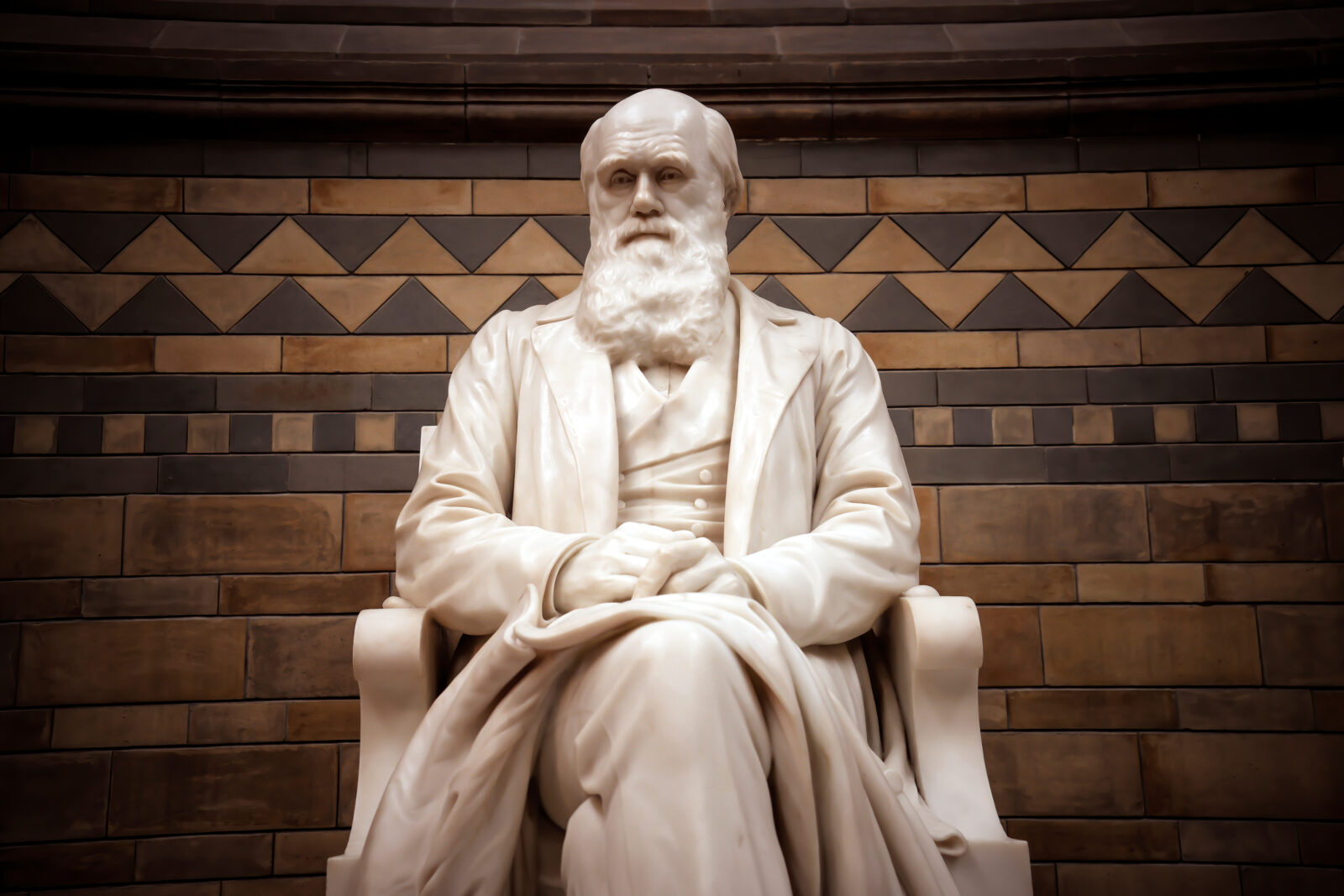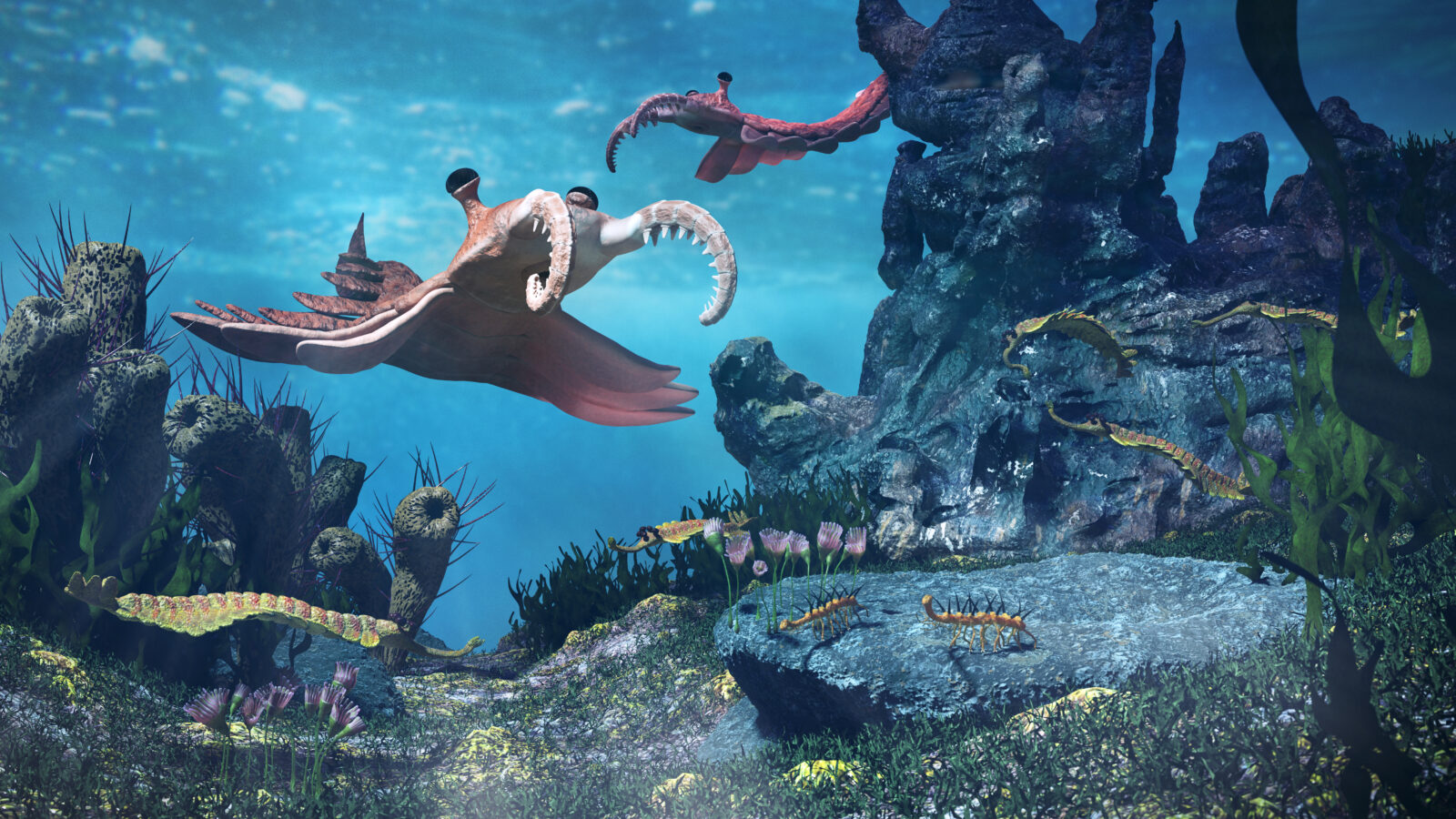


Why Intelligent Design Best Explains the Fossil Record Data

Neil Thomas Talks Darwin, Aquinas, OOL and … Young Frankenstein
On this ID the Future, Taking Leave of Darwin author Neil Thomas continues a lively conversation with radio host Hank Hanegraaff. In this second in a three-part series, the two touch on the fossil record’s challenge to Darwinism, Gould and Eldredge’s rescue attempt, the question of whether Darwin’s best known contemporary defender is dishonest or merely self-deluded, the wishful thinking surrounding origin-of-life studies, the failed attempts to reduce the mind to mere brain chemistry, and the morally repugnant pro-eugenics ideas rooted in Darwinism and touted in the textbook at the heart of the famous Scopes Monkey Trial. The conversation is posted here by permission of Hank Hanegraaff. Get Neil Thomas’s book here.

Author Neil Thomas Takes Leave of Darwin, Pt. 2
On this ID the Future, Taking Leave of Darwin author Neil Thomas and host Jonathan Witt continue their conversation about Thomas’s journey from Darwinian materialism to theistic humanism and a thorough skepticism of Darwinian theory. Here Thomas links the heroic posturing of modern atheists Richard Dawkins and Bertrand Russell, on the one hand, and on the other, the heroic fatalism of poetry stretching back to the early Middle Ages and, further still, to the ancient Greeks. Thomas also draws a link between the animistic thinking of much ancient pagan thought and the magical powers attributed to the Darwinian mechanism. Thomas explains why he now views the latter as essentially “crypto-animism.” In their wide-ranging conversation, Thomas and Witt also touch on contradictions in Darwin’s treatment of natural selection, the tug-of-war between the paleontologists and the geneticists in the evolutionist community (and how their battle points to a conclusion neither side appears willing to consider), and insights proffered by figures as diverse as British philosopher Antony Flew and celebrated American novelist John Updike. Thomas’s new book is available for purchase here.

Günter Bechly: Still More Evidence Against Darwinian Gradualism
On this episode of ID the Future, paleontologist Günter Bechly speaks again with host Andrew McDiarmid about the growing case against Darwinian gradualism. Bechly points out two more cases where fossil discoveries refuted Darwin’s prediction of gradualism in species transitions. In one of the classic showcases for such alleged transitions, between two species of deep-sea protists called foraminifera, more recent research showed their speciation to be abrupt and not an ancestor-descendent sequence. And fossil freshwater snails from Germany, once viewed as another textbook example of gradual speciation, were discovered not to be separate species at all. Is there a paradigm change coming in evolutionary studies? Nothing fits the data better than intelligent design.

Günter Bechly Says Goodbye to Darwinian Gradualism
On this episode of ID the Future, paleontologist Günter Bechly and host Andrew McDiarmid discuss Bechly’s article “Ape-Man Waves Goodbye to Darwinian Gradualism.” Bechly touches on the oldest australopithecine fossil skull ever found, from 3.8 million years ago. The researchers behind the find are confident of its age but puzzled because the discovery undercuts one of the best examples of alleged gradual transition between two hominid species, and it also doesn’t fit well with common theories of phylogenetic relationship. The evidence poses a significant problem for the Darwinian mechanistic paradigm, but can be readily explained with an intelligent design approach.

Does Science Show “There Was No First Human”?
On this episode of ID the Future, Casey Luskin talks with Dr. Ann Gauger about her criticisms of the PBS video, “There Was No First Human,” that attempts to show how evolutionary change happens. The video makes the claim that evolution has been a continuous and gradual process — a claim that many evolutionary biologists would disagree with, and that is not supported by evidence from the fossil record. Listen in as Dr. Gauger explains.